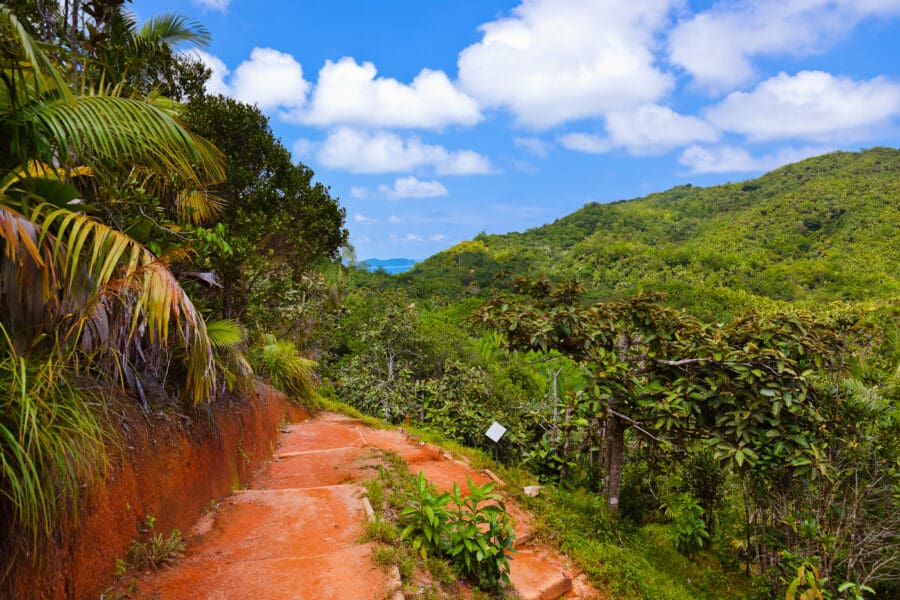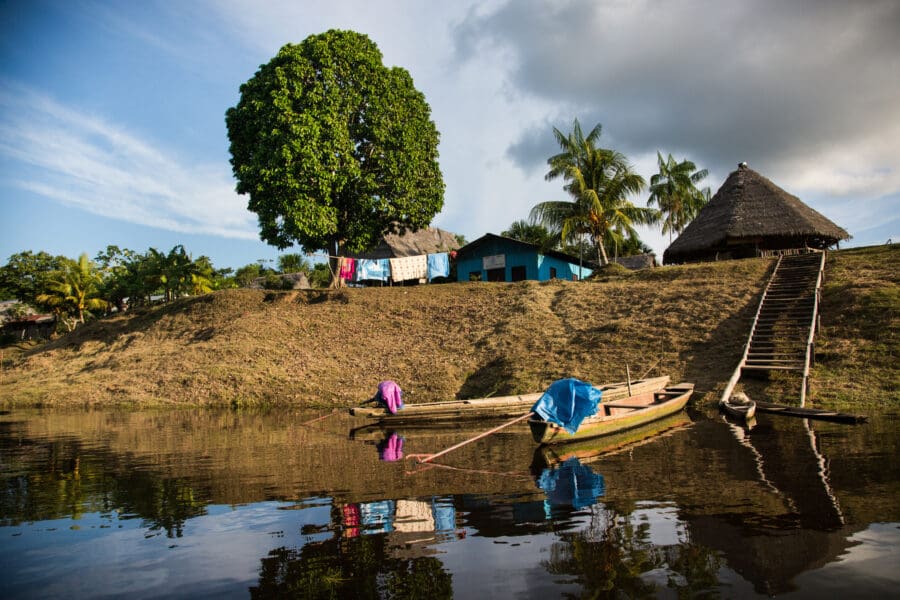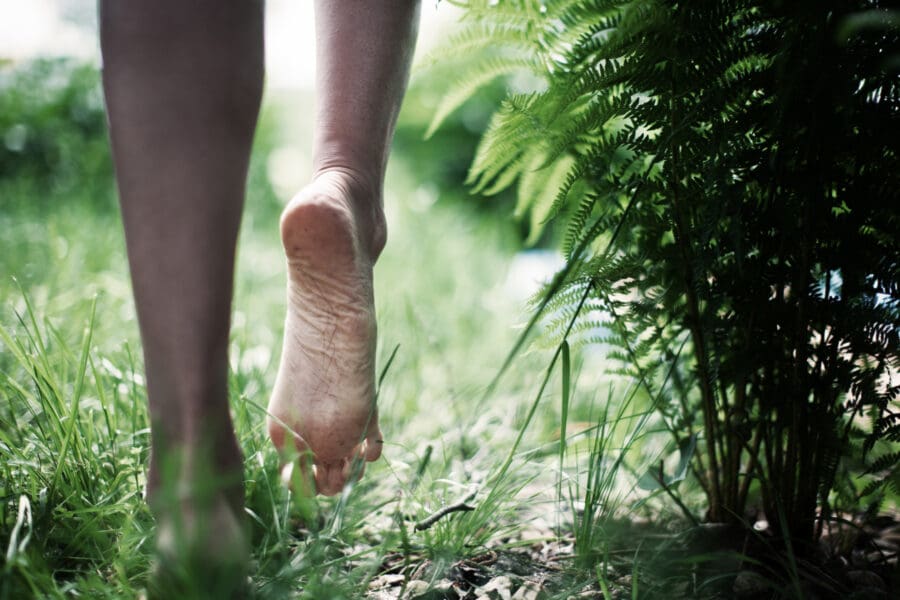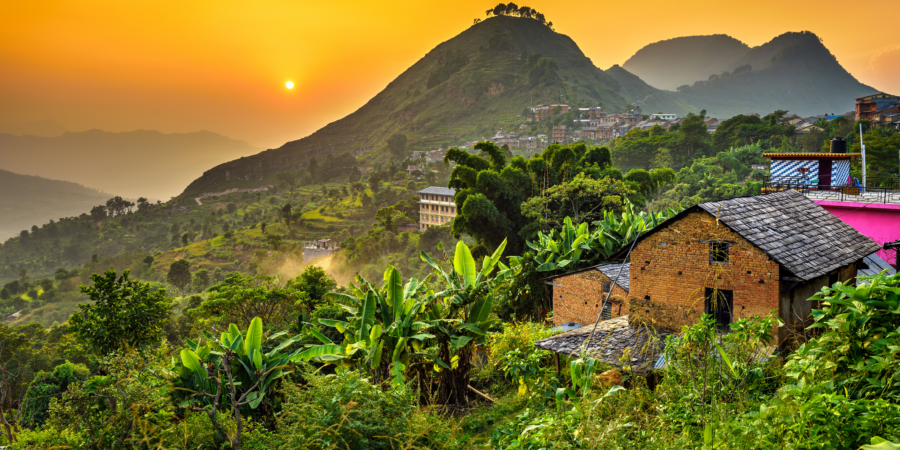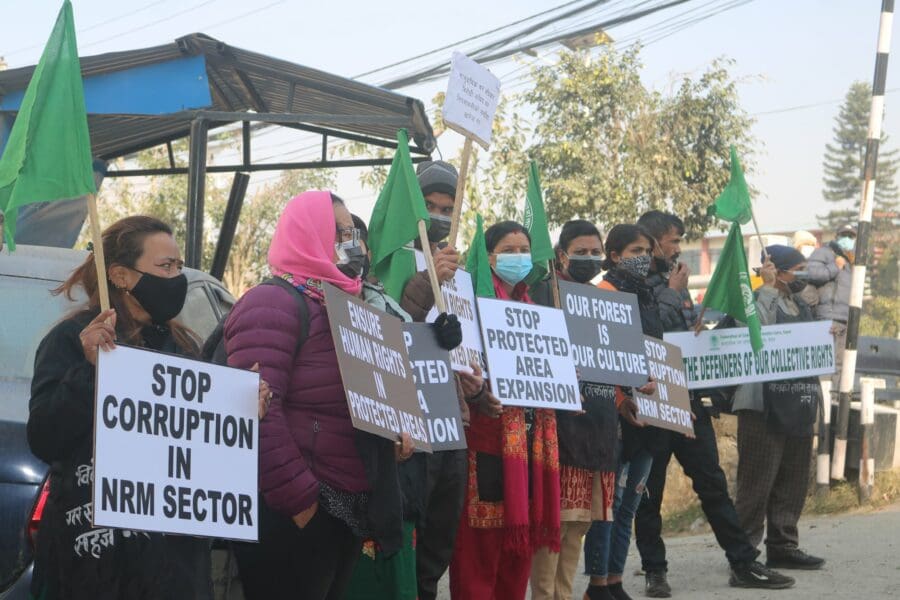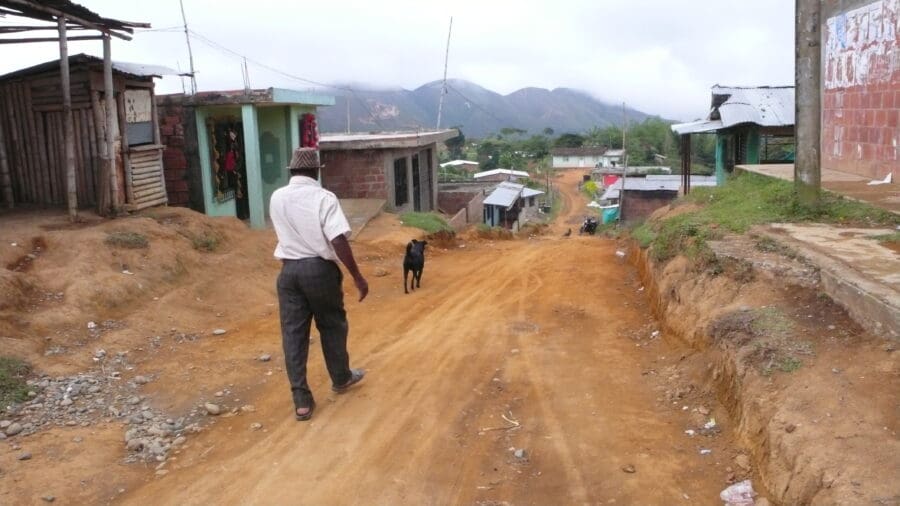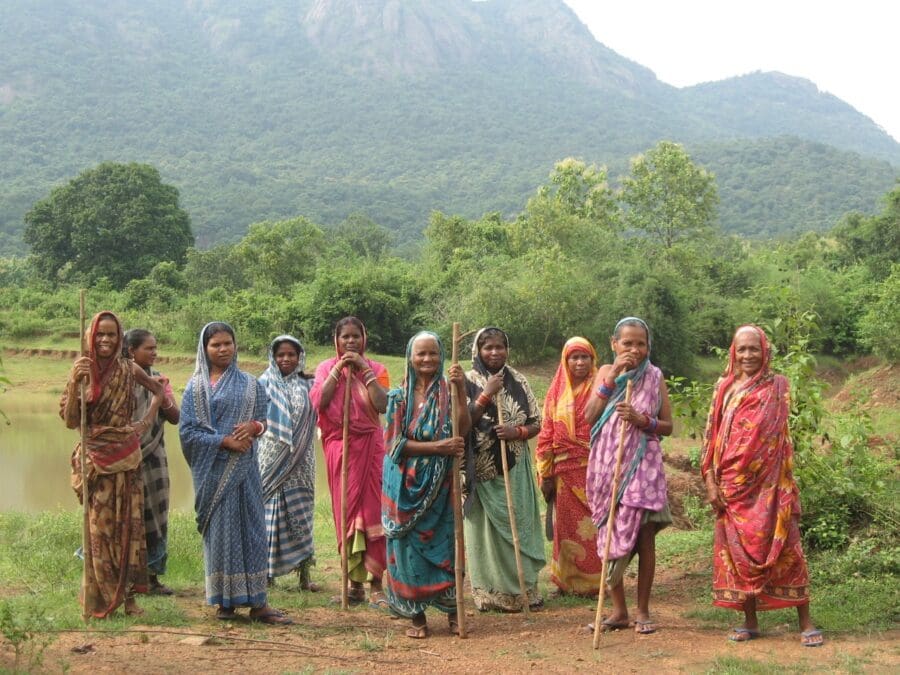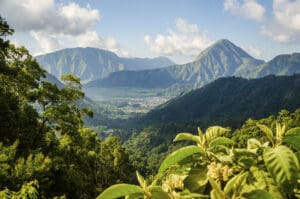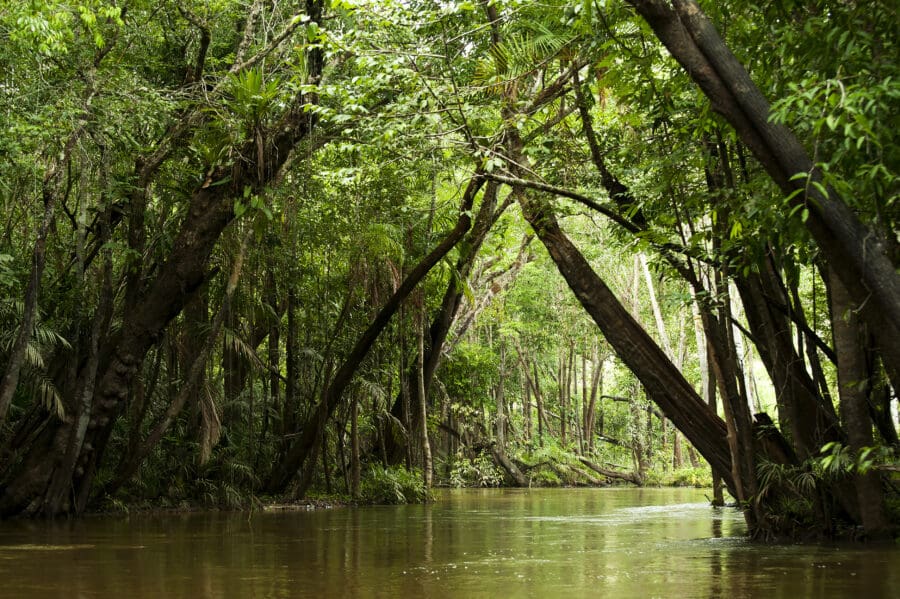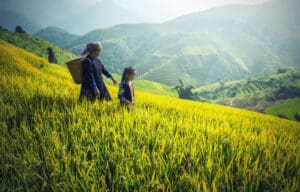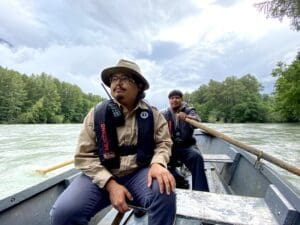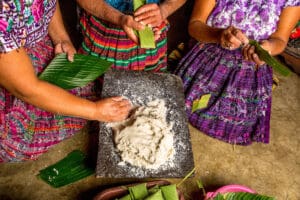Rights and Resources Initiative (RRI) and the Chepkitale Indigenous Peoples' Development Project (CIPDP) organized a site visit to Chepkitale to learn from the Ogiek of Mt. Elgon and shine light on the transformative role of community-led conservation in protecting Kenya's biodiversity-rich forests.
Rights and Resources Initiative expresses its solidarity with the leaders of the Indigenous rights movement in Ecuador who are being criminalized for exercising their legitimate right to mobilize and defend their human rights.
Long-time RRI collaborator Social Entrepreneurs for Sustainable Development (SESDev) examines how Liberia’s Land Rights Law has impacted women’s land rights and livelihoods since 2018.
A new study led by biologists at University of Amsterdam shows that the minimum land area requiring urgent conservation attention to safeguard Earth’s biodiversity is 64 million square km, equalling 44% of the planet’s terrestrial area.
Global trade, consumption, population growth, and urbanization drive transformations that, in part, drive nature’s destruction. The World Economic Forum ranks biodiversity loss as a global top-five risk. Clearly, protecting the environment should be high on political and policy agendas—but too often environmental governance is weak and policy implementation neglected.
India is among the top ten countries most vulnerable to climate change. A new study finds that the Forest Rights Act is an effective tool to enable rights-based and gender-responsive approaches to climate action and can legally empower forest dwellers to manage and govern nearly 40 million hectares of the country's forests.
To forge women’s empowerment worldwide, governments and donors must take action for gender justice and urgently make funding available and accessible to Indigenous, Afro-descendant, and local community women’s organizations in countries in the Global South that have been historically under-supported and under-funded.
In Nawalpur district, 197 km southwest of Kathmandu, women from the Tharu and Kumal tribes in Madyavindu Municipality worked together throughout the 2021 monsoon season finding ways to adapt and support their communities while adhering to pandemic safety guidelines, demonstrating their inspiring resilience and socio-economic prowess.
Several forest regulations recently introduced by Nepal’s Ministry of Forest and Environment are raising serious human rights concerns among the country’s local forest communities. These provisions, currently under cabinet review, are geared to become part of Nepal’s Forest Act. But local forest communities say they are in direct contrast to the Act’s spirit and violate their rights.
On February 9, the Inter-American Court of Human Rights heard oral arguments in a case against the State of Guatemala that could set a precedent for Indigenous communities across Latin America, strengthening their quest for collective rights to their ancestral lands and the right to control their natural resources.
This report is a product of an extensive collaboration between 20 Indigenous and local community organizations across Asia, and brings together data and stories from communities on the ground to re-position global human rights and conservation discourses at the center of Asia’s unique political realities. It frames conservation beyond being an issue of natural resource management and highlights the question of governance, autonomy, and sovereignty of Indigenous Peoples and local communities to achieve their self-determined development aspirations.
Between December 6 - 9, 2021, representatives from the Roundtable on Sustainable Palm Oil (RSPO) and PT Inecda Plantations traveled to Talang Parit to meet with the community for the first time since their complaint was submitted to the RSPO in 2020. These meetings offer a glimmer of hope for the community and the island’s natural resources since the Indonesian government issued PT Inecda a plantation permit in 1984.
As the role played by Indigenous Peoples and local communities in safeguarding the planet gains long-due recognition by global climate and conservation initiatives, their representatives and allies have launched a new mechanism to finance locally-led efforts with full respect for the rights of Indigenous Peoples and local communities.
Lack of secure land rights has long been a key driver of war and conflict in Colombia. Since the formation of the new republic, the country’s land ownership has accumulated in the hands of a small number of elite families, leaving thousands of rural populations without access to land.
The Rights and Resources Initiative (RRI), the Global Alliance of Territorial Communities (GATC) and the Campaign for Nature (C4N) receive grant from Bezos Earth Fund to jointly scale up the recognition of tenure rights of Indigenous Peoples, local communities, and Afro-descendant Peoples in the Tropical Andes and Congo Basin.
In welcome news for India’s forest communities, the state of Odisha has approved 14 Community Rights and Community Forest Resource Rights titles for 24 villages in its Nayagarh district, under the country’s 2006 Forest Rights Act. The government’s move to grant these titles is praiseworthy for one key reason: they recognize women’s critical role in protecting community forests.
A new report by the Forest Carbon Partnership Facility (FCPF), a global partnership for successfully reducing emissions from deforestation and forest degradation, and the World Bank’s fund for Enhancing Access to Benefits while Lowering Emissions (EnABLE), outlines tangible ways global communities can make inroads in the effort to mitigate climate change through strengthening Indigenous sovereignty.
At UNFCCC COP 26, new research shows Indigenous Peoples and local communities hold at least 958 million hectares of land in countries spanning most of the world’s endangered tropical forests – yet have legal rights to less than half of their lands. Community-held lands sequester over 250 billion metric tonnes of carbon, and lack of secure rights threatens to release much of this carbon into the atmosphere through deforestation.
A longtime defender of Indigenous rights in Canada, Dr. M.A (Peggy) Smith will lead the governance of Rights and Resources Initiative – a global coalition of Indigenous and Afro-descendant Peoples and local community organizations.
Recognizing secure tenure rights for local communities and Indigenous Peoples is one of the key drivers of social peace and sustainable economic development. Addressing the common need for a platform to continue sharing experiences and knowledge, we helped establish the African Land Institutions Network for Community Rights (ALIN). To assess progress since meeting in Antananarivo, Madagascar in 2019, the 3rd ALIN Conference will be held in a hybrid format in Lomé, Togo and online from October 12-14, 2021.
A high-level discussion convened by RRI and the FCDO, UK sought to address the ownership gap in collective land rights to tackle climate change and biodiversity loss.
To the west of Great Slave Lake, the second-largest lake in Canada’s Northwest Territories, is a plateau that towers 600 meters above the surrounding Mackenzie Valley. The plateau, which features a unique mosaic of boreal forest, wetlands, and lakes, and is home to dozens of at-risk species, including the woodland caribou, wood bison, and waterfowl, is known as the Edéhzhíe Dehcho Protected Area/National Wildlife Area (pronounced eh-day-shae.)
Secure rights to land are fundamental to enable Indigenous Peoples, and in particular, Indigenous women, to continue their effective stewardship of forests.
This analysis shows that the vast majority of tropical forested countries seeking to benefit from international forest carbon markets have yet to define in law and in practice the rights of Indigenous Peoples, local communities, and Afro-descendant Peoples over carbon in their customary lands and territories.




